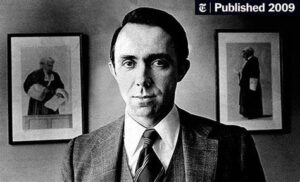David Hackett Souter: From New Hampshire Roots to the Supreme Court Bench

FOR MORE : https://newsorgames.com/
David Hackett Souter, a name once quietly spoken in New Hampshire’s hills, rose to become a pivotal figure on the United States Supreme Court. Known for his thoughtful legal mind and principled independence, Souter’s journey from a small-town upbringing to the nation’s highest court is a compelling story of dedication, intellect, and quiet resilience.
Early Life and Family Roots

Importantly, Souter’s small-town childhood shaped his sense of duty and his preference for a private, contemplative life—traits that would later define his judicial demeanor.
Academic Foundations: A Scholar’s Path

Transitioning into his academic journey, Souter quickly distinguished himself. He graduated magna cum laude from Harvard College in 1961 with a concentration in philosophy—a discipline that laid the groundwork for his logical and principled approach to the law.
Soon after, he was awarded a Rhodes Scholarship, allowing him to study at Magdalen College, Oxford, where he earned a degree in Jurisprudence. Upon returning to the United States, he enrolled at Harvard Law School, receiving his LL.B. in 1966.
Throughout these formative years, Souter’s academic record reflected a quiet brilliance and an affinity for methodical reasoning.
Legal Career: From Local Courts to the Supreme Court
Following his education, Souter began his legal career in public service. He joined the New Hampshire Attorney General’s Office, eventually becoming Attorney General in 1976. From there, his judicial ascent was steady and measured.
First, he was appointed to the Superior Court of New Hampshire, and later to the New Hampshire Supreme Court. In 1990, after a brief tenure on the U.S. Court of Appeals for the First Circuit, President George H. W. Bush nominated him to the United States Supreme Court.
Although expected to lean conservative, Souter soon carved out an independent judicial philosophy. He famously co-authored the opinion in Planned Parenthood v. Casey, which upheld the core tenets of Roe v. Wade, and later dissented in Bush v. Gore, reflecting his deep concern for the Court’s institutional legitimacy.
Conclusion: A Quiet Guardian of the Constitution
In summary, David Hackett Souter’s life and career reflect the virtues of quiet commitment, intellectual rigor, and principled independence. Though he retired from the Supreme Court in 2009, his legacy continues to influence debates about the role of the judiciary in American life.
From the hills of New Hampshire to the marble halls of the Supreme Court, Souter never lost sight of his roots—and perhaps that’s what made him such a profound and trusted voice in American jurisprudence.

Leave a Reply